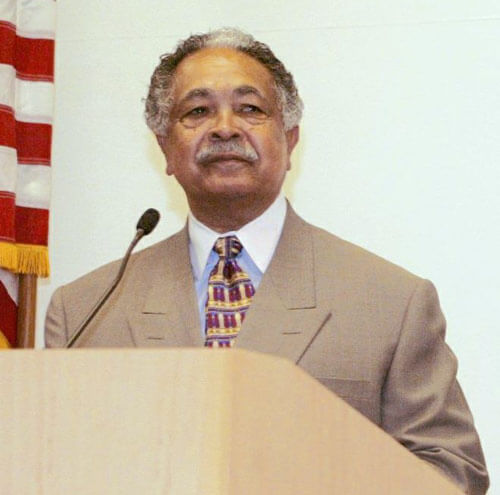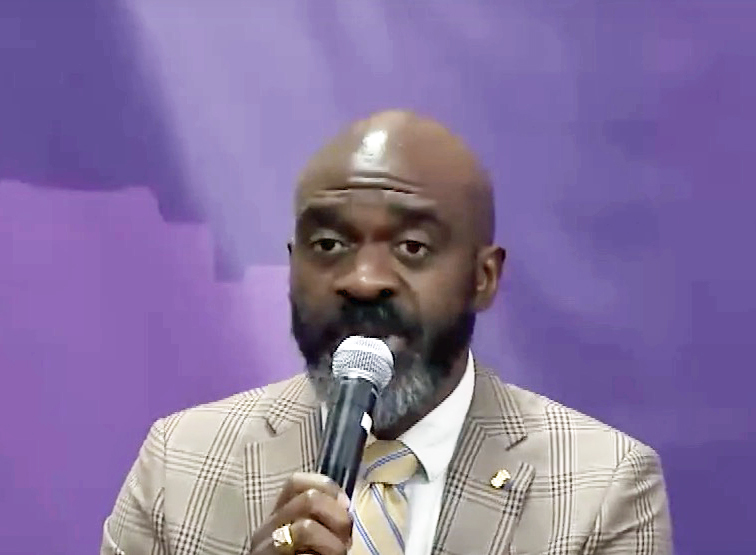The government of Prime Minister Kamla Persad-Bissessar of Trinidad and Tobago has lurched from one disaster, one scandal, one embarrassment to the next with an all-in-a-day’s-work regularity that surely must give pause even to seasoned observers of state-sponsored misadventure. Approaching the mid-point of her term, the evidence has mounted rapidly that precious little remains, if any at all, of the reserves of goodwill Bissessar rode to a comfortable electoral plurality in May, 2010. Those expectations among the citizenry of brand-new possibilities for the country, with the historic election of its first female prime minister heading a coalition government, seem now a wispy indulgence, well more than two and a half years distant.
Bissesar’s administration is, at the moment, battling head winds from an episode that will no doubt soon elicit from her, if it hasn’t already, the “Let’s move on” salve she readily applies whenever there’s been this big-screen projection of misconduct. There are some signs of greater resistance this time to the “move on” line. This latest infamy – in which a section of a criminal justice bill passed by the parliament was surreptitiously extricated and presented to the country’s president for early proclamation — appears to have touched some raw nerves beyond the usual talk radio diatribes, press sniping and blowback from political adversaries. For one thing, a huge crowd heeded the call of Opposition Leader Keith Rowley to hit the streets in protest against this wanton abuse of power and to demand the ouster of the two cabinet members seen as hands-on orchestrators of the perfidious action, the attorney general and the minister of justice.
Unshakably of a piece with the early-proclamation gambit is the appearance of dirty dealing arising from the potential benefit it held for two financiers of the ruling party, who have for years been under indictment for fraud in the construction of the Piarco Airport terminal. Because they are wanted for related offences in the U.S. as well and a judge in Trinidad some time ago blocked their extradition, the plot surrounding the nimble pair has grown ever thicker, including this latest governmental sleight of hand with the legislation which, some contend, provided a loophole for the two men to walk free.
Keeping an uncanny silence for a good while after these shenanigans became a cause célèbre, the prime minister finally announced recently that the justice minister had been dismissed, she having concluded that he was solely responsible for leading the government onto the prickly ground it now occupied. If some, perhaps allies of or favorably disposed to Bissessar, found this appeasement attempt acceptable, it’s clear that many do not.
Getting rid of a guy who ought never to have been in anybody’s cabinet in the first place is small comfort to a public enraged by not only the “in your face” diss from the government in the instant matter, but an accumulation of them. This latest volley, though, may have “last straw” potential. The “loose cannon” handle frequently affixed in press reports to Herbert Volney, the fired justice minister who is the one sacrificial lamb so far, is, if anything, somewhat charitable. Volney was a sitting high court judge with a history that included some eyebrow-raising rulings and many a preposterous popping off, who abruptly quit the bench to become, almost instantaneously, a candidate for political office in Bissessar’s party. Bissessar, in claiming the cabinet was duped by a fellow as beset by issues as Volney seems to be, apparently doesn’t much care how this comments on the crew she leads. A more likely reaction in the public square to the prime minister’s Volney maneuver is that offering him up was the least onerous path to containing the hubbub.
Volney, like a few others who have been cut loose from the cabinet, was expendable. Others, much less so. There are those who are dead certain, for example, that Jack Warner, even with all the international notoriety that attaches to his name, is securely of “untouchable” ranking. Who would dare doubt? That Warner would be installed as the country’s minister of national security is probably the biggest affront yet to the governed by the folks now bearing the responsibility of governance.
Most concerning is that the continuing eruptions of highhanded, devil-may-care action of one kind or another seem to have produced no awareness whatsoever of such a behavioral arc being noxious, to be altogether avoided. Ideally, Bissessar’s “move on” intonation would suggest plowing arduously forward, experience having delivered the tools for more skillful navigation ahead. Instead we have here a saga of the repetitive strut, where enjoying authority status and the rule of law are polar opposites, where preening and posturing under the rubric of power is the stylebook’s foremost performance dictum and where how all of this looks from the other side doesn’t count for squat.
So there’s been a junior unqualified officer brazenly positioned to assume a top intelligence post; there’s been the odious presence of Warner; there’s been a channeling of calypsonian Mighty Spoiler’s “Magistrate Try Himself” classic, this time Bissessar arranging for themselves “bigging-up” themselves in the award of the celebrated silk (senior counsel status) for herself and her attorney general…a litany of other abhorrent stuff. Given all of which, no one should expect this sneaky early-proclamation ruse, dastardly though it be, to rise even to bump-in-the-road level for these players.
























